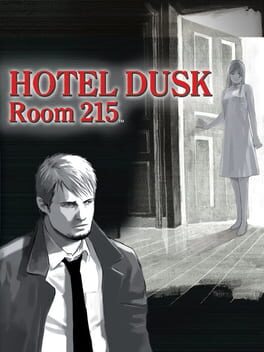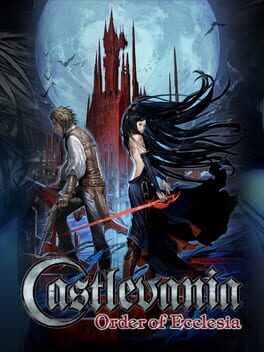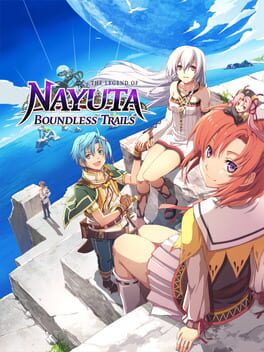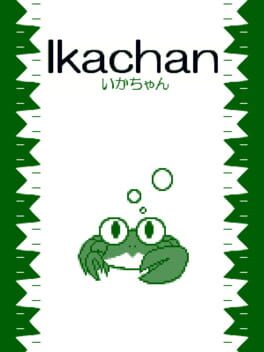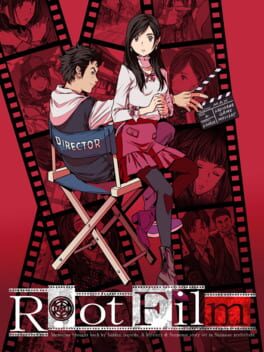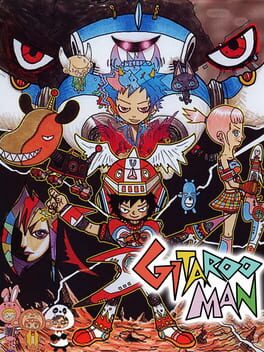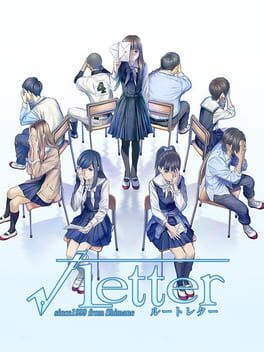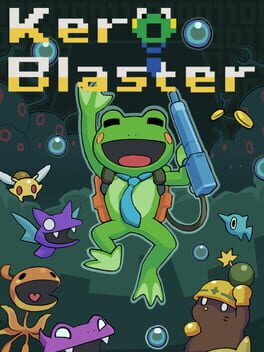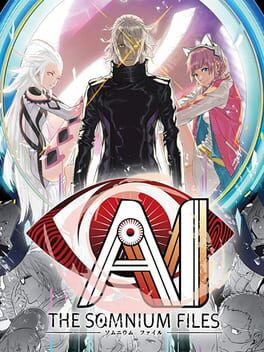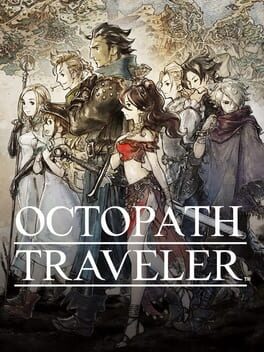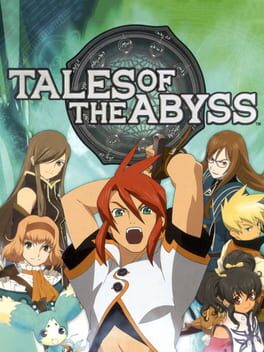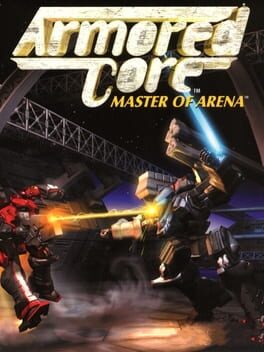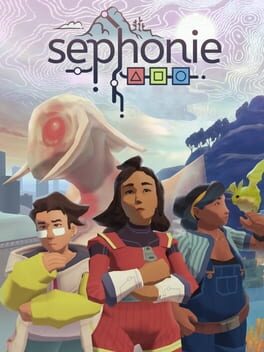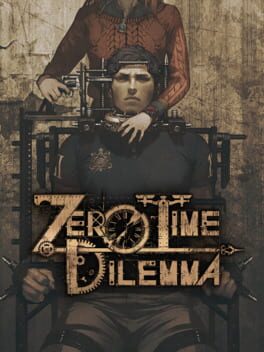wingXblade
2007
The dying breath of Castlevania is a really lovely and exciting surprise after the rest of the trash on the DS. Ecclesia is the most refined the RPG elements of the franchise have ever been with a reserved greatest-hits assortment of movement options. The world map + small castle is a really economical move; there's only so many ways you can connect the damn castle. I don't love the quests, but I also always potion through the end (though this is the first time in many releases I've enjoyed fighting Drac) and the quests seem like a fine way to route you through end-game grind if that's your thing.
The constantly sexy promotional art and amnesiac plot really had me worried, but Shanoa is earnestly very very cool. Her amnesiac plot is pretty basic, but a surprising amount of NPC dialogue is here to firmly state that there's nothing innate about womanhood; that our material experiences, memories, and connections are what form our personhood. Refuting the over-wrought burden of sacrifice many try to fix to the experience of being women, Order of Ecclesia offers a methodical and laborious rediscovery of memory and franchise past for the purpose of letting go.
The constantly sexy promotional art and amnesiac plot really had me worried, but Shanoa is earnestly very very cool. Her amnesiac plot is pretty basic, but a surprising amount of NPC dialogue is here to firmly state that there's nothing innate about womanhood; that our material experiences, memories, and connections are what form our personhood. Refuting the over-wrought burden of sacrifice many try to fix to the experience of being women, Order of Ecclesia offers a methodical and laborious rediscovery of memory and franchise past for the purpose of letting go.
CNs for The Legend of Nayuta: Boundless Trails: sexual harassment, kidnapping, mind control.
Masters of the PSP Nihon Falcom send off the console with this behemoth and extremely video-game-y video game. Nayuta is a smash cut of middle-era laser dance and combo chain Ys combat, the social sim-gazing side-quests of the Zemuria Legends of Heroes games, and the Zweii style exploration sprinkled over some very humble 3D platforming. This is an ARPG that is pretty conventional in narrative to create the space needed to refine the small scale low-stakes endeavor that gets dropped after each new Zemuria arc begins. Nayuta does very simple yet breathtaking things to place a high(er) fantasy world rendered as a conventional level select screen in relation to a small and mostly un-changing hub village chapter-to-chapter: the youngest village boy is nowhere to be found, some visiting artists come your backwaters island, or someone else is suddenly helping you with your boxed lunches in your elder sister's absence. Your village vibrates in very slight ways while the attached fantasy world expands in typical "Forest, mushroom, ice, lava" fashion; it's been hollowed out by meta-physical family drama that echoes into and wraps around the petty domestic woes of your village. A very healthy and moderate kind of mission collectable will have you running from the placement focused anti-flash dodge combat zones to go back to the village to sell some bugs, cook your lunch, and train with the master of your runaway chosen-family-brother/boyfriend. The Legend of Nayuta is a fine tuned gem for those who love the imagination space between classic DQ dungeons, anyone into slow slice of life character work, and for everyone looking for something unbespoke and earnest from their RPGs in a post Nier:Automata/cinematic games release landscape.
Masters of the PSP Nihon Falcom send off the console with this behemoth and extremely video-game-y video game. Nayuta is a smash cut of middle-era laser dance and combo chain Ys combat, the social sim-gazing side-quests of the Zemuria Legends of Heroes games, and the Zweii style exploration sprinkled over some very humble 3D platforming. This is an ARPG that is pretty conventional in narrative to create the space needed to refine the small scale low-stakes endeavor that gets dropped after each new Zemuria arc begins. Nayuta does very simple yet breathtaking things to place a high(er) fantasy world rendered as a conventional level select screen in relation to a small and mostly un-changing hub village chapter-to-chapter: the youngest village boy is nowhere to be found, some visiting artists come your backwaters island, or someone else is suddenly helping you with your boxed lunches in your elder sister's absence. Your village vibrates in very slight ways while the attached fantasy world expands in typical "Forest, mushroom, ice, lava" fashion; it's been hollowed out by meta-physical family drama that echoes into and wraps around the petty domestic woes of your village. A very healthy and moderate kind of mission collectable will have you running from the placement focused anti-flash dodge combat zones to go back to the village to sell some bugs, cook your lunch, and train with the master of your runaway chosen-family-brother/boyfriend. The Legend of Nayuta is a fine tuned gem for those who love the imagination space between classic DQ dungeons, anyone into slow slice of life character work, and for everyone looking for something unbespoke and earnest from their RPGs in a post Nier:Automata/cinematic games release landscape.
CWs for Zero Escape: Nine Hours, Nine Persons, Nine Doors: blood, graphic injury, sexual harassment, kidnapping, sedation, child death.
Uchikoshi's directorial debut is maybe his best version of his one trick. A touchdown of a DS exclusive, 999 plays on reader assumptions based in game logic, hardware, and UI to neatly wrap them into earnestly pulpy character beats. The feelings of piecing together a mystery for someone doing 0 detective guesswork have never been mechanized better. There are no end goals or bigger statements, but the metanarrative moves are evocative enough that the whole game is supported.
I've been tricked into podcasting about this franchise! Listen to our episode closing out 999.
Uchikoshi's directorial debut is maybe his best version of his one trick. A touchdown of a DS exclusive, 999 plays on reader assumptions based in game logic, hardware, and UI to neatly wrap them into earnestly pulpy character beats. The feelings of piecing together a mystery for someone doing 0 detective guesswork have never been mechanized better. There are no end goals or bigger statements, but the metanarrative moves are evocative enough that the whole game is supported.
I've been tricked into podcasting about this franchise! Listen to our episode closing out 999.
2000
2020
CWs for Root Film: Sui*, spousal abuse, gaslighting, falling from great heights, traffic accidents, emotional manipulation, drowning, blood, graphic wounds, body horror, torture, asphyxiation.
Root Film, despite seeming like a wide turn from it's extremely pastoral predecessor, is mostly a very chill workplace comedy adventure novel game about small actors and directors working in made for tv mystery films who accidentally stumble into various mysteries and then actual murder cases. Both perspective characters Yagumo and Riho are a delight, having really snappy rapport with the supporting cast without ever sneering into the camera for a quip or belaboring the genre tropes the game is often quietly building upon. The Root games continuing to be about adults who have jobs in a specific town or city that then end up in situations is a really grounding approach to character and scenario writing that is really absent in novel games and games as a whole and ultimately makes these games really phenomenal despite also being extremely average.
The mystery solving and adventure game stuff is cleaned up a lot from Root Letter. They've dialed back the fucked up volume of locations to keep in order and have made the chapter culminations really simple affair, sitting somewhere between Ace Attorney Investigation's Logic Chess and the evidence bullets of Danganronpa trials. The steps to win these cross examinations are much more slight, but really it's better that you only have to prove like three or four argument points because the game is otherwise a breezy affair. I dislike how the tone of the overarching mystery develops against my taste and what I liked the most about the first game, but the way it builds and uses the all of the game's formal and promotional material is exciting when it does finally let you give answers. This is a really smart follow up to Root Letter that answers a lot of shortcomings of that game while still keeping the same low key identity that makes that game stand out.
Root Film, despite seeming like a wide turn from it's extremely pastoral predecessor, is mostly a very chill workplace comedy adventure novel game about small actors and directors working in made for tv mystery films who accidentally stumble into various mysteries and then actual murder cases. Both perspective characters Yagumo and Riho are a delight, having really snappy rapport with the supporting cast without ever sneering into the camera for a quip or belaboring the genre tropes the game is often quietly building upon. The Root games continuing to be about adults who have jobs in a specific town or city that then end up in situations is a really grounding approach to character and scenario writing that is really absent in novel games and games as a whole and ultimately makes these games really phenomenal despite also being extremely average.
The mystery solving and adventure game stuff is cleaned up a lot from Root Letter. They've dialed back the fucked up volume of locations to keep in order and have made the chapter culminations really simple affair, sitting somewhere between Ace Attorney Investigation's Logic Chess and the evidence bullets of Danganronpa trials. The steps to win these cross examinations are much more slight, but really it's better that you only have to prove like three or four argument points because the game is otherwise a breezy affair. I dislike how the tone of the overarching mystery develops against my taste and what I liked the most about the first game, but the way it builds and uses the all of the game's formal and promotional material is exciting when it does finally let you give answers. This is a really smart follow up to Root Letter that answers a lot of shortcomings of that game while still keeping the same low key identity that makes that game stand out.
2001
2016
An extremely pastoral and methodical take on the adventure-mystery game where the mystery is the melodrama of AnoHana with a bunch of 30 year olds. The sheer amount of areas to scroll through (thanks Matsue tourism board) and a lot of UI oddities can produce some frustration, but the meat of this game is an earnest mulling over the slowness and the arbitrary nature of meeting people, growing up, and growing apart. The routing of the game is mellow while the logic steps of being super confrontational with people you only know via 15 year old written descriptions is right parts absurd and exciting. Max mode is goofy but so is the rest of it. I think the game really didn't need multiple endings and could have been a much cleaner thing if the normal ending was the only ending with some expansion, but you gotta get the VN trash ppl in I guess. Don't bother playing the bad routes, they're not as absurd as some other places on the internet would make you believe.
2014
Proudly declaring that the max jetpack, the bubbler, and the fire were the greatest buttons to press in Cave Story. The greatest moments for me are really intense about examining those tools, but the mostly pantomimed plot and lush set pieces are also total home runs. Addresses the problem of Cave Story's true ending being behind very difficult content by making the additional story content extremely slight instead of making the play less difficult. I think this move says very constructive things about access and capability.
I've played most of the Infinity series and I'd say this is the worst thing Uchi has made. Horny and pedophilic for no fucking reason and the puzzles aren't particularly exciting. The shlock and atmosphere is fun but the cast is not very good and the Uchi twist doesn't feel well placed this time around.
2018
2005
2022
A puzzle and platforming game (not a puzzle-platformer) surrounding an unconventional sci-fi workplace drama. Three scientists confront the red tape of international research, the constraints of careerism, the material content of their lives, their relationship with each other, and also an emerging alien existential and viral threat to the planet. I had a lot of apprehension at the size of this game and the breadth of subject matter is pulling in, but this is maybe my favorite container for the Analgesic team's prose. Some of the jumps fucking blow and the camera is a constant antagonist as it always is in our current era of 3D platformers, but the accessibility options offer a wide gradient of curating difficulty such that anyone should have a good time.
Moving between methodical platforming to color match puzzle games is, at once, disorienting and perfectly connected. The emotional overture of this game is largely about the capability for adaptation all life has and the eventual ease of snapping between disparate Video Game Challenges drives this home so so well. The whole "middle class people with a lot of resources realize they can imagine and design actionable steps for a better world" will always be a weak narrative goal for me, but the kind of dilemmas of the workplace and nationalism that haunt these characters is delivered in the described gameplay loop that has linked the often overly-dreamlike prose to reality.
Moving between methodical platforming to color match puzzle games is, at once, disorienting and perfectly connected. The emotional overture of this game is largely about the capability for adaptation all life has and the eventual ease of snapping between disparate Video Game Challenges drives this home so so well. The whole "middle class people with a lot of resources realize they can imagine and design actionable steps for a better world" will always be a weak narrative goal for me, but the kind of dilemmas of the workplace and nationalism that haunt these characters is delivered in the described gameplay loop that has linked the often overly-dreamlike prose to reality.
Probably the Uchikoshi's strongest and boldest work after ever17 and 999. It is fairly maligned for really being another completely different thing in a series which is barely a series. Did a whole fucking podcast on this franchise which culminated in "actually this game rocks".
